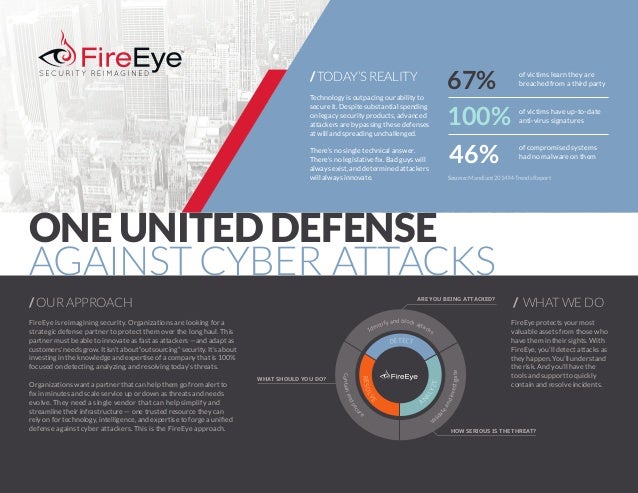U.S. cybersecurity firm FireEye discloses breach, theft of internal hacking tools
FireEye, one of the largest cybersecurity companies in the United States, said on Tuesday that is has been hacked, possibly by a government, leading to the theft of an arsenal of internal hacking tools typically reserved to privately test the cyber defenses of their own clients.
The hack of FireEye, a company with an array of business contracts across the national security space both in the United States and its allies, is among the most significant breaches in recent memory.
The FireEye breach was disclosed in a blog post authored by CEO Kevin Mandia. The post said "red team tools" were stolen as part of a highly sophisticated, likely "nation-state" hacking operation. It is not clear exactly when the hack initially took place. . .
"We hope that by sharing the details of our investigation, the entire community will be better equipped to fight and defeat cyber attacks," Mandia wrote.
The company itself has partnered in recent weeks with different software makers to share defensive measures.
There is no evidence yet that FireEye's hacking tools have been used or that client data was exfiltrated. But the investigation, which includes help from the Federal Bureau of Investigation and Microsoft Corp, is in its early phases.
"This incident demonstrates why the security industry must work together to defend against and respond to threats posed by well-funded adversaries using novel and sophisticated attack techniques," a Microsoft spokesperson said
Don't Get Too Excited About FireEye's Cloud-Computing Transformation
After releasing better-than-expected third-quarter results last month, FireEye (NASDAQ: FEYE) last week announced a cloud acquisition and a strategic investment to accelerate its transformation as a cloud cybersecurity player. Following the news, the stock price jumped by more than 6%, but investors shouldn't get too excited.
Transition to cloud and services
Over the last several years, FireEye developed a portfolio of cloud and managed services to offset the decline of its legacy hardware businesses. And during the last quarter of 2019, the cybersecurity specialist reached an inflection point . . .
Top stories
More > How bad could it be?





No comments:
Post a Comment